How I got a literary agent - An interview with author Richard E. Dixon
firstwriter.com – Monday December 19, 2005
Richard E. Dixon recently acquired an agent using firstwriter.com's database of literary agencies. We asked him about his writing, and how he found success.
fw: Thanks for taking the time to share your story with us, Richard, and congratulations on placing your book with an agent. What's your book called, and what is it about?
RD: My novel is called The Diary. It's in two parts. Part one takes place in pioneer Oregon. Jake Baker and his wife, Maggie, join an Oregon-bound wagon train in St. Louis is 1857. The train becomes lost in one of Oregon Territory's most desolate areas. Jake, while searching for the trail, falls with his horse into a deep box canyon during a blinding thunderstorm. He's too crippled by the fall to climb out of the canyon, but survives there for fourteen years. Meanwhile, Maggie makes it to civilisation with the wagon train. She finds work on a farm in the Willamette Valley of western Oregon, eventually inheriting the farm. She never remarries, always hoping Jake will find her. Part two takes place in modern times. Dave Wheeler, a young private pilot working for his commercial pilot's license, takes a summer job on a large cattle ranch in eastern Oregon. Part of his job entails periodically checking the cattle herds in the remote parts of the ranch by small plane. While flying low one day, he flies over a deep canyon and sees a small cabin in it. He later rappels down and finds Jake Baker's remains, and a diary. With information in the diary, he and his girlfriend find Jake and Maggie's great great granddaughter, Annie. Annie is able to rappel, and asks Dave to take her into the canyon so that she may bring out her grandpa's remains. Dave complies. When Annie enters the rotting cabin, she places a gentle hand on Jake's ashy skull. She whispers: "It's time to go home, Grampa. Maggie is waiting".
fw: What made you want to write a novel?
RD: I sailed many years as a Merchant Marine radio officer. I enjoyed reading Westerns while at sea, and decided to try to write one of my one.
fw: And how did you go about writing it, once you'd made that decision?
RD: I renovated an old storage shed on my 40-acre Oregon place. That's where I write, at least three hours a day. sometimes many more. I began my novel in 1980, but worked only sporadically at it until the last two years, when I hit it hot and heavy.
fw: Is it your first attempt at writing?
RD: This is my first novel. I've had articles published in Sea Classics, Plane and Pilot, and Popular Communications magazines. While at sea, I copied Morse code news broadcasts from a Marine radio station in New York and put out daily newspapers for the passengers and crew.
fw: What was the first thing you did to try and get your novel published?
RD: I immediately searched for an agent, as soon as I had my novel polished and ready to market.
fw: How did you go about trying to find an agent?
RD: I first tried finding an agent through "Fiction-addiction".
fw: Was that successful, or did you find joining firstwriter.com more effective?
RD: I find firstwriter.com extremely helpful. Being able to see what material agents will or will not accept is invaluable. firstwriter.com found my agent.
fw: How did you go about making your approach to agents?
RD: I composed my query letter utilising suggestions from two books on the subject, and articles from Writer's Digest. I sent query letters out one at a time and gave each agent a certain amount of time to respond before sending another.
fw: How long did it take to get a positive response?
RD: I searched for an agent for about three months. After six rejections, Martin-McClean Literary Associates asked to see my entire manuscript. Lisa Martin responded within hours after I submitted my email query letter. She agreed to represent me to a publisher, and I've signed a contract with her.
fw: What do you think she took you on?
RD: My agent thinks my novel is well written, interesting, and original (her words).
fw: So what's it like now that you've got an agent?
RD: I consider myself extremely fortunate to find an agent who thinks my novel is saleable. I don't respect Stephen King's recommendation not to bother hiring an agent. He might have that luxury, but we unknowns wouldn't stand a chance in today's literary world without an agent (in my opinion). My agent will be sending out 12 "packages" for me to publishers in the next few days.
fw: What advice would you give to other writers trying to find an agent?
RD: I feel I should be very cautious in giving tips or advice to other writers, as I won't consider myself one until my novel is at Barnes and Noble. I will say that I didn't at first take the query letter method of introducing myself to an agent as seriously as I should have. Query letters are veryimportant. Without a carefully and thoughtfully composed one, your excellent manuscript might never be read.
fw: What are you doing with your writing now?
RD: Now that The Diary has gone out into the big old nasty world, I feel freeeeee, and I'm starting a new novel. This one will be a sea story.
Thanks, firstwriter.com, for giving me the opportunity to think for a while that I might one day be a published author. I know I have a long way to go!
fw: The best of luck in getting there! Thank you for taking the time to talk to us.




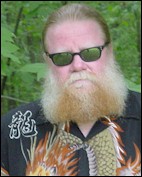 How I got a literary agent - An interview with author James R. Larson
How I got a literary agent - An interview with author James R. Larson How I got a literary agent - An interview with author, Charles Heaton Allen
How I got a literary agent - An interview with author, Charles Heaton Allen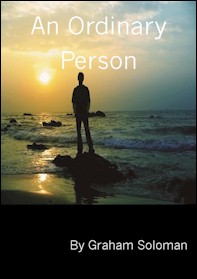 How I got a literary agent - An interview with author, Graham Soloman
How I got a literary agent - An interview with author, Graham Soloman How I got a literary agent - An interview with author, Robert W. Morgan
How I got a literary agent - An interview with author, Robert W. Morgan How I got a literary agent - An interview with author Rob Riley
How I got a literary agent - An interview with author Rob Riley How I got a literary agent - An interview with author Geri Spieler
How I got a literary agent - An interview with author Geri Spieler How I got a literary agent - An interview with author Adrienne Schwartz
How I got a literary agent - An interview with author Adrienne Schwartz How I got a literary agent - An interview with author, Eric Houghton
How I got a literary agent - An interview with author, Eric Houghton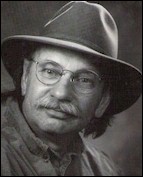 How I got a literary agent - An interview with author David C. Burton
How I got a literary agent - An interview with author David C. Burton How I got a literary agent - An interview with author Frank Hotchkiss
How I got a literary agent - An interview with author Frank Hotchkiss Verse & Vision: Interview with Mark Gottlieb, Leading Literary Agent
Verse & Vision: Interview with Mark Gottlieb, Leading Literary Agent How I got a literary agent - An interview with Mary Kilgore
How I got a literary agent - An interview with Mary Kilgore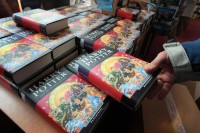 So you want to be a novelist? A New York literary agent, editor and author reveal how bestsellers are born
So you want to be a novelist? A New York literary agent, editor and author reveal how bestsellers are born The first three steps to finding a literary agent
The first three steps to finding a literary agent New Literary Agent Listing: Gabrielle Demblon
New Literary Agent Listing: Gabrielle Demblon Reading Force is delighted to welcome submissions from adults, children and young people to its 2025 Memoir Writing Competition
Reading Force is delighted to welcome submissions from adults, children and young people to its 2025 Memoir Writing Competition New Publisher Listing: Cicada
New Publisher Listing: Cicada Calling all aspiring authors! Here's your chance to win a one-to-one session with a literary agent - plus £1,500
Calling all aspiring authors! Here's your chance to win a one-to-one session with a literary agent - plus £1,500 New prize for translated poetry aims to tap into boom for international-language writing
New prize for translated poetry aims to tap into boom for international-language writing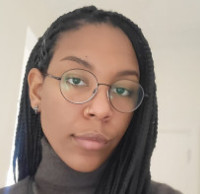 New Literary Agent Listing: Kaylyn Aldridge
New Literary Agent Listing: Kaylyn Aldridge TikTok parent ByteDance is shutting down its short-lived book publisher
TikTok parent ByteDance is shutting down its short-lived book publisher New Magazine Listing: And Other Poems
New Magazine Listing: And Other Poems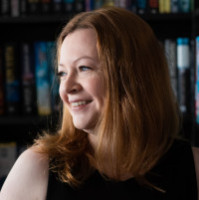 New Literary Agent Listing: Helen Lane
New Literary Agent Listing: Helen Lane UK audiobook revenue up by almost a third last year
UK audiobook revenue up by almost a third last year New Publisher Listing: Radio Society of Great Britain
New Publisher Listing: Radio Society of Great Britain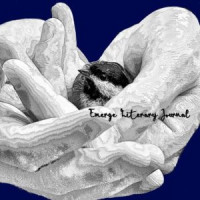 New Magazine Listing: Emerge Literary Journal
New Magazine Listing: Emerge Literary Journal New Literary Agency Listing: Ghosh Literary
New Literary Agency Listing: Ghosh Literary New Publisher Listing: Hardie Grant
New Publisher Listing: Hardie Grant
